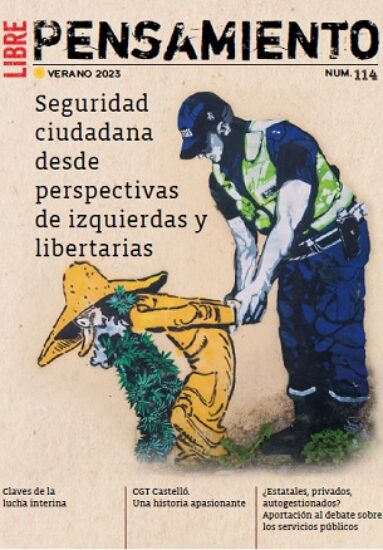Una respuesta afirmativa a tal pregunta tiene implicaciones un poco tenebrosas y
debe posponerse, o quizás ni debe ser contestada, por lo menos en alto. Digamos tan
solo que el Tío Samuel siempre ha aparentado ante el mundo ser afable, un pariente
mundano a quien no se le ha conocido o comprendido bien ; alguien quien visitara en
ocasiones luciendo prendas lujosas y aires de gallito, siempre emanando estabilidad
y éxito ; alguien que se creía dueño del mundo, y que sin querer concebía envidia.
Desafortunadamente, ese tío que visitara a su familia durante las ultimas dos
décadas era mas bien un pordiosero sin blanca que había malgastado su fortuna
viviendo por todo lo alto, y jugándose el resto en actos de belicismo y
globalización selectiva. Y sus visitas empezaron a ser mas frecuentes, invitando a
todos a compartir su «buena fortuna», aparentemente siempre y cuando invirtiesen en
esas confabulaciones.
La realidad de una recesión es algo de que finalmente se habla tanto por imbeciles
como por sabios de esa sociedad estadounidense de Esperanza en Perpetuidad, y que
incluye a los codiciosos de Wall Street, a un gobierno mentiroso y a un servil Banco
Central. ¡Ahora, una vez que ya estamos en ella. o por lo menos a la entrada !
En realidad no es la «R» de recesión lo que me aterra, sino la posibilidad que sea
una «D» de depresión lo que nos caiga encima. Una «R» para la mayor parte del mundo
y una fatídica «D» para EEUU. Claro que es muy posible que la Casa Blanca y el
Congreso creen suficiente pasapasa para decelerar la carnicería económica hasta
después de las elecciones presidenciales – quizás haciendo que el Banco Central baje
su tasa dos o tres puntos y pongan sobre las espaldas de generaciones futuras otra
deuda más de entre 150 a 200 mil millones de dólares. Pero la tasa de inflación que
se observa, aunque el gobierno la deniegue o esconda, no nublará la realidad, y la
economía de EEUU se verá en cueros ante el mundo, dirigida por el mago de Oz.
Este lunes y martes las bolsas asiáticas y europeas nos dieron un anticipo de su
nerviosismo por el estado económico estadounidense, no importa que su PBI sea solo
el 28 por ciento del mundial, y esté declinando. Perdidas en dos días sobrepasaron
el 10 por ciento del valor bursátil, aunque Wall Street pudo conseguir que sus
pérdidas el martes solo mediasen entre el 1 y 2 por ciento. De todas formas esto
indica que EEUU y su economía todavía pesan en el mundo económico. Y también es un
recordatorio glacial de una generosidad forzada de esas naciones acreedoras que
probablemente pronto pongan fin a ella. Entonces. ¿Quién sufragará el malgasto de
los ciudadanos estadounidenses ? ¿No está acaso EEUU siguiendo los pasos de
Argentina, Brasil, Méjico y otras naciones tercermundistas cuya política económica
tanto criticó EEUU ?
EEUU, la nación que debiera ser acreedora por excelencia, ha pasado a ser un
parásito con los ahorros del mundo, convirtiéndose en la nación mas endeudada del
planeta ; ahora con tan solo dos opciones, una, el permitir que las naciones
acreedoras conviertan su papel en activos fuertes, permitiendo que el orgulloso
norteamericano se convierta en vasallo del capital extranjero ; o, dos, cambiar los
hábitos de consumo y aprender a vivir dentro de sus propios medios.
El requisito económico que se necesita no parece ser entendido por la mayoría de los
economistas, y aun la elite dentro de la profesión hace declaraciones dudosas que no
parecen venir al caso. Como Paul Krugman, cuyo juicio en la materia normalmente
respeto, diciendo lo compleja que es la economía estadounidense cuando el adjetivo
que debiera usar es engañoso. ¿No se supone que las derivativas debieran de haber
desaparecido tras el fiasco de las dot-com ? En vez de eso, otros nuevos
instrumentos financieros, y engañosos, han hecho su debut sin escrutinio alguno por
un gobierno empeñado en no echar mano a un capitalismo rapaz cuya misión es
redistribuir riqueza de la clase media a la clase adinerada. No compleja, Dr.
Krugman, tan solo engañosa.
¡Y todo este tiempo, la hermandad de economistas con su silencio solemne !
Según escribo el artículo me pregunto si las leyes de termodinámica podrían
aplicarse al arte-ciencia de economía, algo así como econodinámica, o movimiento en
economía. Quizás si nuestras facultades de Ciencias Económicas, antes de admitir
candidatos al doctorado en la materia debieran exigir estudios de física o
ingeniería, por lo menos que incluyesen termodinámica y estadística quántica –
admito que a mi me ayudó. Por lo menos resulta mucho más al grano y complementario
que la política. Conocimientos sobre conservación de energía, entropía y la
temperatura de cero absoluto (las tres leyes de termodinámica) aparecerán intuitivas
en la comprensión del crecimiento económico, y el tratamiento de producción, consumo
y ahorros. y mucho más.
Quizás Arnold Sommerfeld, el físico alemán, tenia razón, si es que su atribución es
verídica : «Termodinámica es una materia curiosa. La primera vez que la estudias, no
la entiendes. En tu segundo intento crees entenderla excepto por una o dos
cosillas. La tercera vez no la entiendes pero estas tan acostumbrado, que ya ni te
importa». Substituye termodinámica por económicas y es posible que puedas entender
de que pie cojean los economistas.
La religión para poder añadir valor a la condición humana debe de ser más que una
simple fe. Del mismo modo, las Ciencias Económicas deben aspirar a ser más ciencias
(no arte) y sus practicantes aparentar ser algo más que charlatanes al servicio de
alguien, el gobierno o alguna industria en general, con un buen don de
prestidigitación.
Desde que la política exterior y la política económica están sumamente entrelazadas
en EEUU, una carnicería económica lo antes posible daría a los norteamericanos un
muy necesitado empujón para impugnar a Bush y Cheney, quienes han traído al país a
este estado apremiante de miseria ; y al mismo tiempo anunciar la retirada de tropas
tanto de Irak como Afganistán ; y también dar crédito a la idea, que en el futuro,
EEUU tan solo será solícito con Israel cuando esa nación pare en seco su predominio
sobre los palestinos y entable negociaciones realistas para una coexistencia
territorial que traiga paz ; y que Israel permanecerá siendo un buen amigo y aliado
pero no se le otorgará la llave de la política exterior, algo que hasta la fecha ha
tenido.
© 2008 Ben Tanosborn
www.tanosborn.com
Has the US defrauded the world’s economies ?
A yes answer to a question with such scary implications begs postponement ’til
another day. perhaps it is a question that should never be answered, not out loud.
Let’s just say that Uncle Sam has always appeared to the world as an affable,
worldly relative that they never quite really knew, or understood ; one who visited
occasionally wearing fancy duds and displaying graying hairs – and cocky airs –
exuding both stability and success ; someone who made the world his oyster. and all
the relatives envious.
Unfortunately, that uncle who visited his family during the last two decades was
more of a jobless, penniless relative who had whittled away his fortune in fancy
living and lousy gambling – warmongering and selective globalization may be more
apropos – schemes. And his visits started to be more frequent, now inviting one and
all to share in his «good fortune». apparently by investing in many of those
schemes.
The reality of a recession is finally talked about by both imbecilic and sage
members of America’s Hope Springs Eternal society, and that includes super-greedy
Wall Street, a government in lying perpetuity and the amenable Fed. Now, after all
this time, when we know that we are already there. or, at least, at the entry way !
Actually it’s not the «R» word that scares me, but the possibility of the
unmentionable capital «D» for depression. An «R» with fair penmanship for much of
the world, and a «D» with illegible calligraphy for the US of A ! Of course, there’s
a chance that the White House and Congress might create enough hocus pocus – perhaps
by «having» the Fed cut its rate 2 or even 3 points and throwing away another 150 to
200 billion dollars on the shoulders of future generations – to decelerate the
economic bloodbath until past the November elections, but the observed (even if
hidden by the government) rate of true inflation won’t allow smoke and mirrors to
cloud reality, and America’s economy will appear buck naked before the world,
directed behind curtains by the Wizard of Oz.
On Monday and Tuesday Asian and European markets gave us a preview of their own
nervousness with the US, even if this nation’s share of the world’s GDP (now at just
28 percent) keeps, understandably, declining. Combined losses averaged over 10
percent overseas, if mildly affected by Wall Street losses on Tuesday (1.1 and 2
percent for the Dow and NASDAQ), told us that America’s actions still weigh heavily
in economic world affairs. And it was also an icy reminder that the credit largesse
by those creditor nations may soon be coming to an end. Then, whose money will
Americans be able to spend, er.waste ? Isn’t the US really following on the
footsteps of Argentina, Brazil, Mexico and third world nations whose economic
policies America has criticized for so long ?
America, the should-be creditor nation par excellence, has become instead a parasite
to the savings of the world, becoming the largest debtor nation in the planet with
only two possibilities left : one, allowing America’s creditors to liquidate the
paper for hard assets, permitting once-proud Americans to become vassals to foreign
capital ; or two, change America’s consumption habits. and learn to live within our
means.
The precarious economic fix does not seem to be understood by most economists, and
even the very elite in the profession make questionable statements which seem out of
the ballpark. Like Paul Krugman, whose judgment I usually respect, asserting how
complex the US economy is, when the adjective should have been deceptive. Weren’t
derivates supposed to have disappeared after the dot-com fiasco ? Instead,
additional crooked financial instruments were allowed to debut without proper
scrutiny by a hands-off government happy to see capitalism run amuck in predatory
ways to once again redistribute wealth from middle-class to rich. Not complex, Dr.
Krugman, just deceptive !
And all the while, those in the trade-brotherhood of economics in solemn silence !
As I am writing this article engaged in the thought of the applicability of physics’
laws of thermodynamics to the art-science of economics, I came up with what I
thought to be a proper term to describe it : econodynamics (or movement in
economics). After googling the word, however, I discovered that it wasn’t for me to
coin, that it had been used once before, probably in a different context to mine, or
in its seriousness.
For our purpose here, let’s just say that it would probably be worth considering if
our graduate schools of economics required their Ph. D. candidates to have an
academic background in engineering, at least through the junior year, with at least
knowledge of thermodynamics and quantum physics – I might add that it has helped me.
Certainly a more appropriate complementary background than that of politics !
Knowledge about conservation of energy, entropy and absolute zero temperature (the
three laws of thermodynamics) can certainly prove insightful to the understanding of
economic growth, and the treatment of production, consumption and savings. plus much
more.
Perhaps Arnold Sommerfeld, the German physicist, had it right, if this attribution
to him is correct : «Thermodynamics is a funny subject. The first time you go
through it, you don’t understand it at all. The second time you go through it, you
think you understand it, except for one or two small points. The third time you go
through it, you know you don’t understand it, but by that time you are so used to
it, it doesn’t bother you any more.» Substitute thermodynamics with economics and
you may understand what most economists are all about.
Religion, to have value for the human condition, must be much more than just faith.
In like fashion, economics should aspire to become more of a science, and its
practitioners must be more than just charlatans, at someone’s service, with a fast
sleight of hands.
Since both foreign policy and economic policy are thoroughly enmeshed in the US, an
economic bloodbath coming sooner than later might give Americans a much needed push
to finally clamor for the impeachment of Bush and Cheney, the two men at the top who
have brought this nation to such level of plight and misery ; concurrently heralding
impending exits from both Afghanistan and Iraq ; and also giving credence to the
idea, that in the future, America will only be solicitous with Israel when that
nation brings to a halt its dominance over Palestinians and engages in true
negotiations for territorial co-existence in peace ; that Israel will remain a good
friend and ally but will not be allowed to hold the key to US foreign policy as it
has done up to now.
© 2008 Ben Tanosborn
www.tanosborn.com
Fuente: Ben Tanosborn












